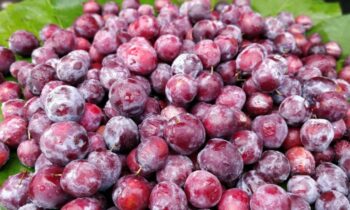All babies under 8 months old enough ought to have another neutralizer chance to safeguard against extreme respiratory syncytial infection, or RSV, concurring a proposal from the US Places for Infectious prevention and Counteraction.
A board of free specialists that exhorts the organization – the Warning Council on Inoculation Practices, known as ACIP – casted a ballot consistently on Thursday to suggest the infusion, which will be added to the CDC’s young life vaccination plan now that CDC chief Dr. Mandy Cohen has approved the suggestion.
In a moment consistent vote, ACIP likewise prescribed that specific newborn children ages 8 to 19 months get a second portion of nirsevimab to assist them through their second RSV with preparing, assuming that they have fundamental medical problems that put them at higher gamble for hospitalization.
The shot is the principal item accessible to safeguard all babies against RSV, a lung-going after infection that is the main source of hospitalization in youngsters who are under a year old. Cases will in general top over the fall and cold weather months. More youthful children are at most elevated risk from the disease, which can fill little lungs with bodily fluid, making it challenging for babies to relax.
“I’m extremely amped up for this. I think this will be mind boggling,” said ACIP part Dr. Helen Talbot, a pediatrician at Vanderbilt College after the vote. ” I think this is groundbreaking and I’m exceptionally energized. Talbot stated, “I just hope we can get through the hurdles” to get it to patients.
Some racial and ethnic groups are more severely affected by RSV than others. Native American and The Frozen North Local youngsters have hospitalization rates for RSV that are 4 to multiple times higher than everybody, so the CDC said they ought to be qualified to have another opportunity, as well.
Nirsevimab is a long-acting neutralizer — a protein that can perceive and bind RSV so it can’t contaminate cells — not an immunization. It will be advertised under the trademark Beyfortus.
The shot was also added by committee members’ votes to the federally funded Vaccines for Children Program, which provides free immunizations to children who might not otherwise receive them.
“This new RSV vaccination furnishes guardians with a useful asset to safeguard their kids against the danger of RSV,” Cohen said in an explanation. ” We have taken a significant step today to make this life-saving product available because respiratory syncytial virus (RSV) is the leading cause of hospitalizations for infants and older babies who are at higher risk.
The shot will be the primary type of inactive inoculation added to the youth vaccination plan.
As opposed to immunizations, which brief the body to make antibodies against microbes, uninvolved inoculations don’t need the body to make anything. These treatments send defensive antibodies into the body all set to work.
Sanofi and AstraZeneca, the two organizations promoting nirsevimab, say it ought to be accessible to patients in a couple of months, in time during the current year’s RSV season.
“Today, we have turned the corner on the danger of RSV to our most youthful, most weak populace,” said Thomas Triomphe, leader VP for immunizations at Sanofi. ” The ACIP’s consistent suggestions for routine utilization of Beyfortus and consideration in the Immunizations for Kids program are basic strides toward giving huge number of guardians in the U.S. with the capacity to safeguard their infants through their most memorable RSV season, when they are generally helpless to extreme RSV sickness.”
The therapy, a long-acting antibody, should be much easier to access under the new recommendations. Immunizer treatments like this one can cost many dollars for a solitary portion, so even families with protection inclusion could end up with sizable co-pays for this security.
Be that as it may, approval from the ACIP implies the new shot will be accessible to all babies with no personal expense for families. The government Reasonable Consideration Act commands that protection plans cover ACIP-prescribed inoculations with no expense sharing to patients.
Protection inclusion might get some margin to kick in, be that as it may. Under the law, organizations have a year to carry out inclusion for new items and that inclusion would then produce results in the following arrangement year, so it could be up to year and a half until certain plans start covering.
Drug makers have not declared Beyfortus’ cost, but rather during the gathering, that’s what sanofi said assuming the shots is suggested for all babies, it will cost $495 per portion for private payors and $395 for the public authority’s Antibodies for Youngsters program. Experts from the CDC modeled a list price of $495 per dose and determined that the government would save money by covering it.
“A remarkable development”: In clinical trials, the injection cut the chance that a baby would get RSV and need to be hospitalized by about 75%. It was 90% compelling forestalling the requirement for serious consideration for children with RSV.
In genuine terms, the treatment is assessed to forestall one specialist’s visit for each 17 children treated, one trauma center visit for each 46 babies treated and one emergency clinic confirmation for each 128 infants treated, the CDC said.
“I truly do accept that as far as the development of this, this is a truly significant forward-moving step,” said ACIP seat Dr. Beauty Lee, a pediatrician at the Stanford College Institute of Medication.
Nirsevimab only works for about five to six months, so it needs to be given as close to the RSV season as possible. The season in the United States typically runs from October to March, but it can vary in warmer or colder regions.
”As we head into respiratory infection season this fall, it’s essential to utilize these new instruments accessible to help forestall extreme RSV ailment,” Cohen said. ” I urge guardians of babies to converse with their pediatricians about this new vaccination and the significance of forestalling extreme RSV.”
The CDC says babies brought into the world during or presently before RSV season ought to have a chance of nirsevimab during their most memorable seven day stretch of life. The individuals who are more youthful than 8 months old enough who haven’t had a shot ought to get one without further ado before RSV season, CDC said.
Infants who are somewhere in the range of 8 and 19 months old enough and have hidden gambles with that make them more powerless against hospitalization — this incorporates preemies with immature lungs, kids with cystic fibrosis, and those with seriously compromised resistant frameworks — can get a second portion to help them through their subsequent season, the CDC said.
“This is a remarkable development. It will benefit offices as well as families and keep children out of the hospital. In addition, insurance will cover it, and all of the implementation will be in place in two years. So there will be bumps in the road, but I don’t want to forget how significant this development is,” said Dr. Jamie Loehr, a family physician in New York who is a member of ACIP.



